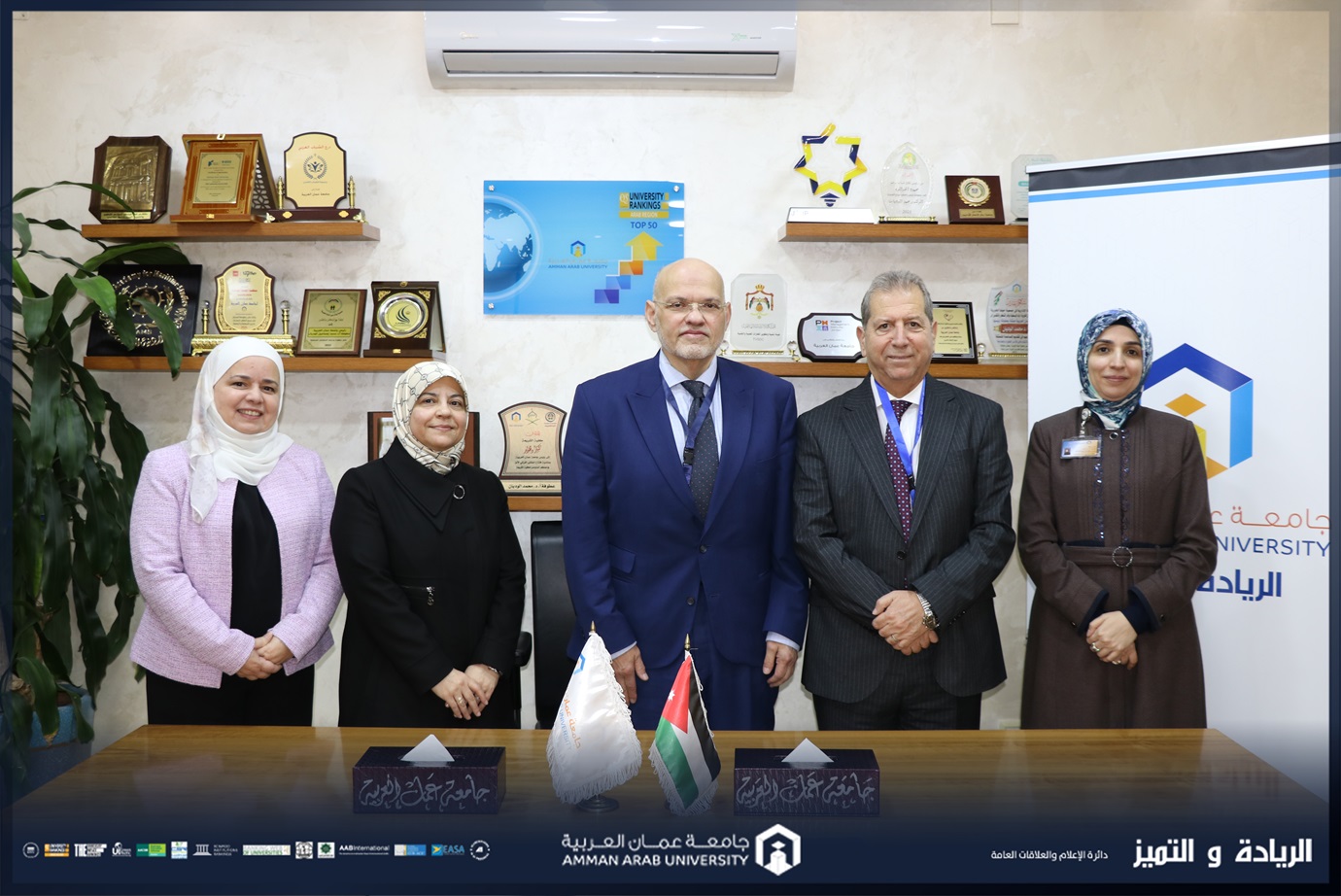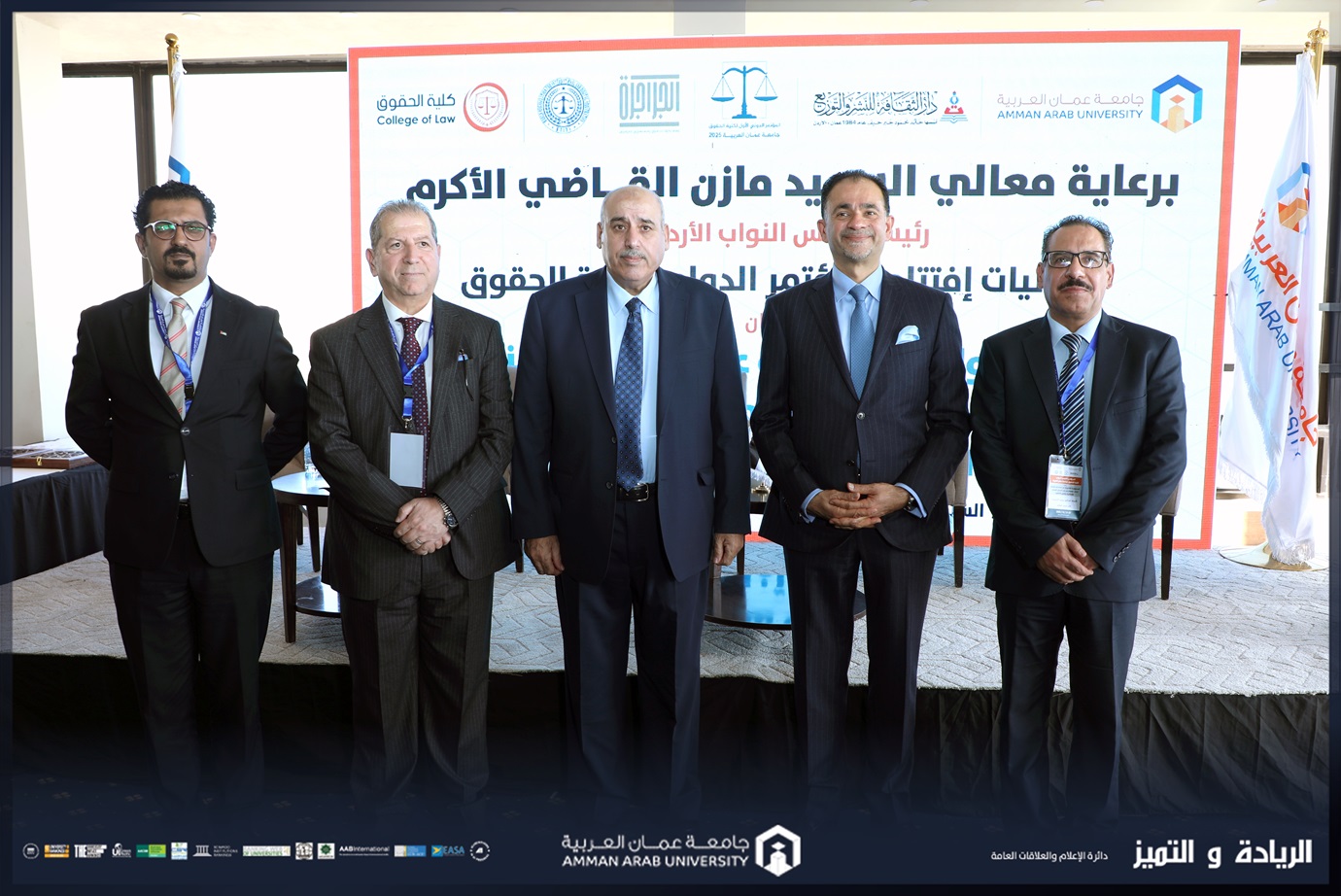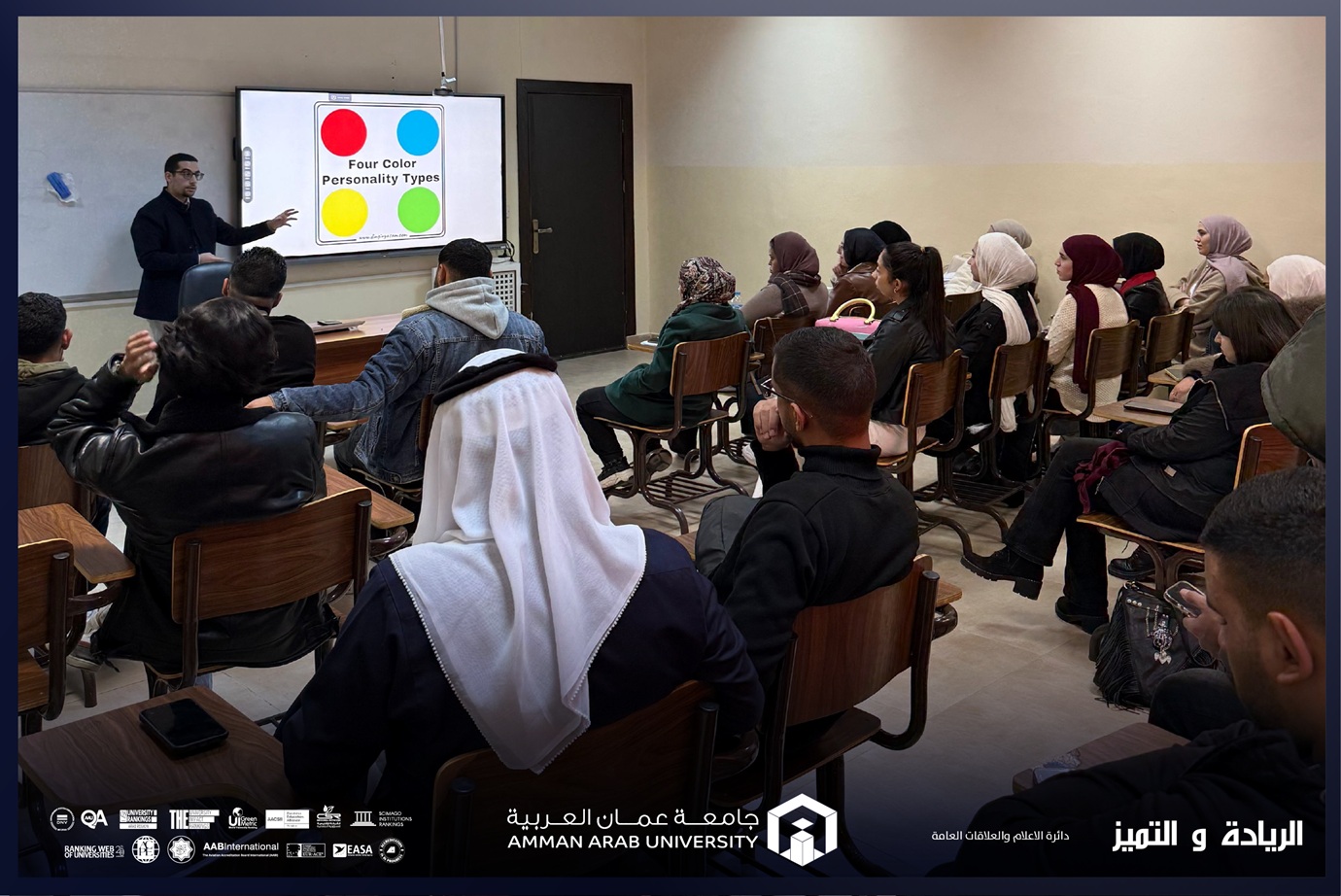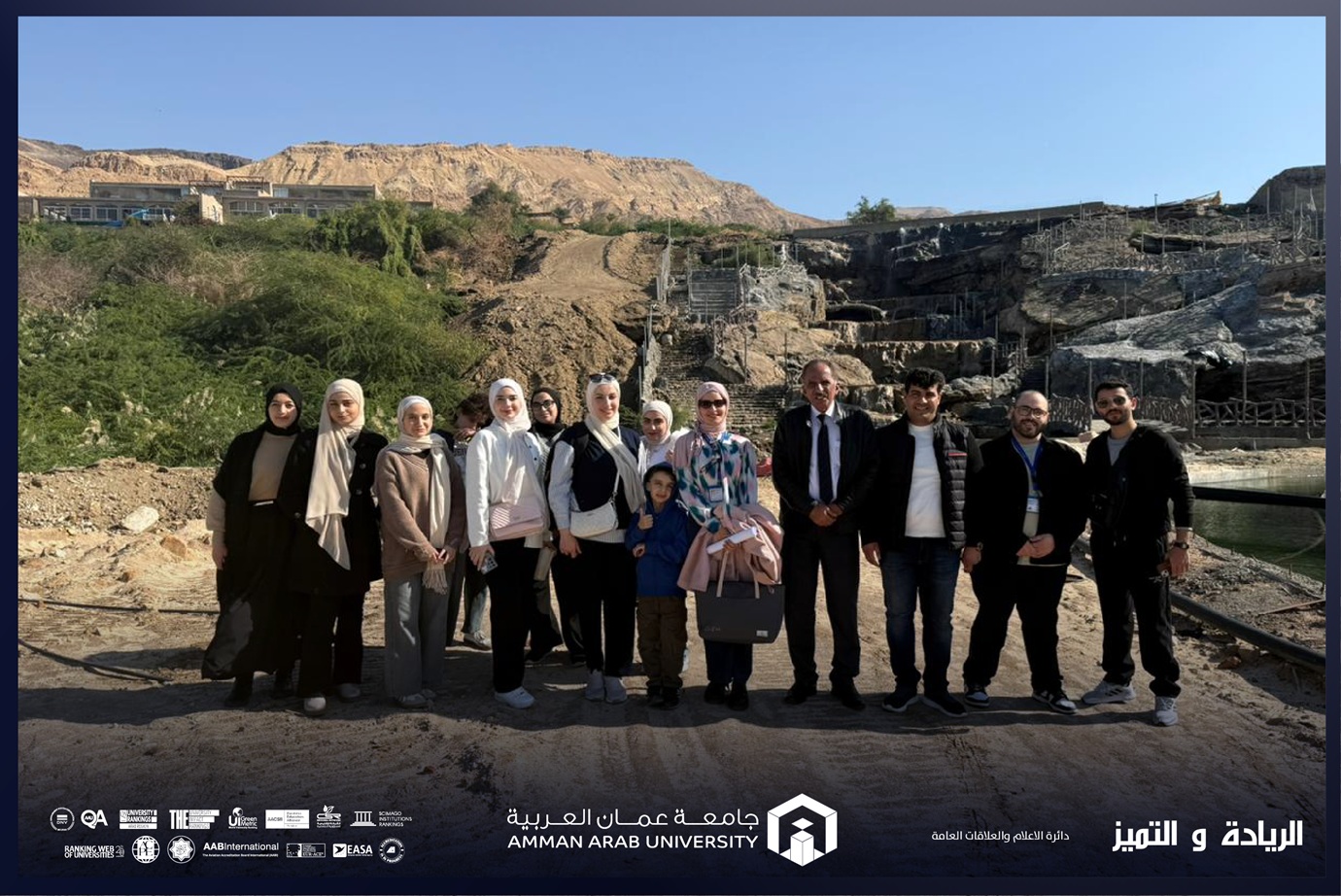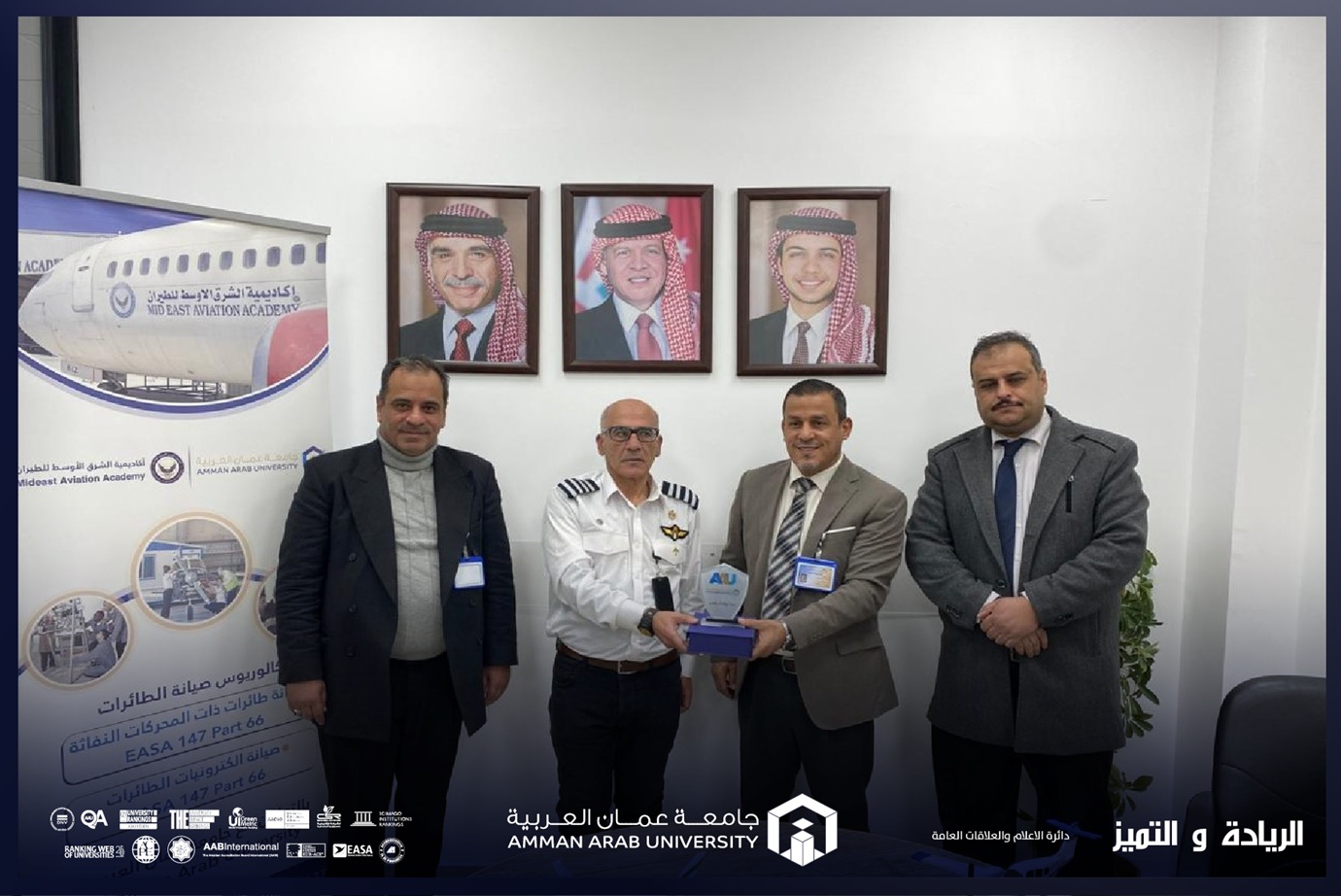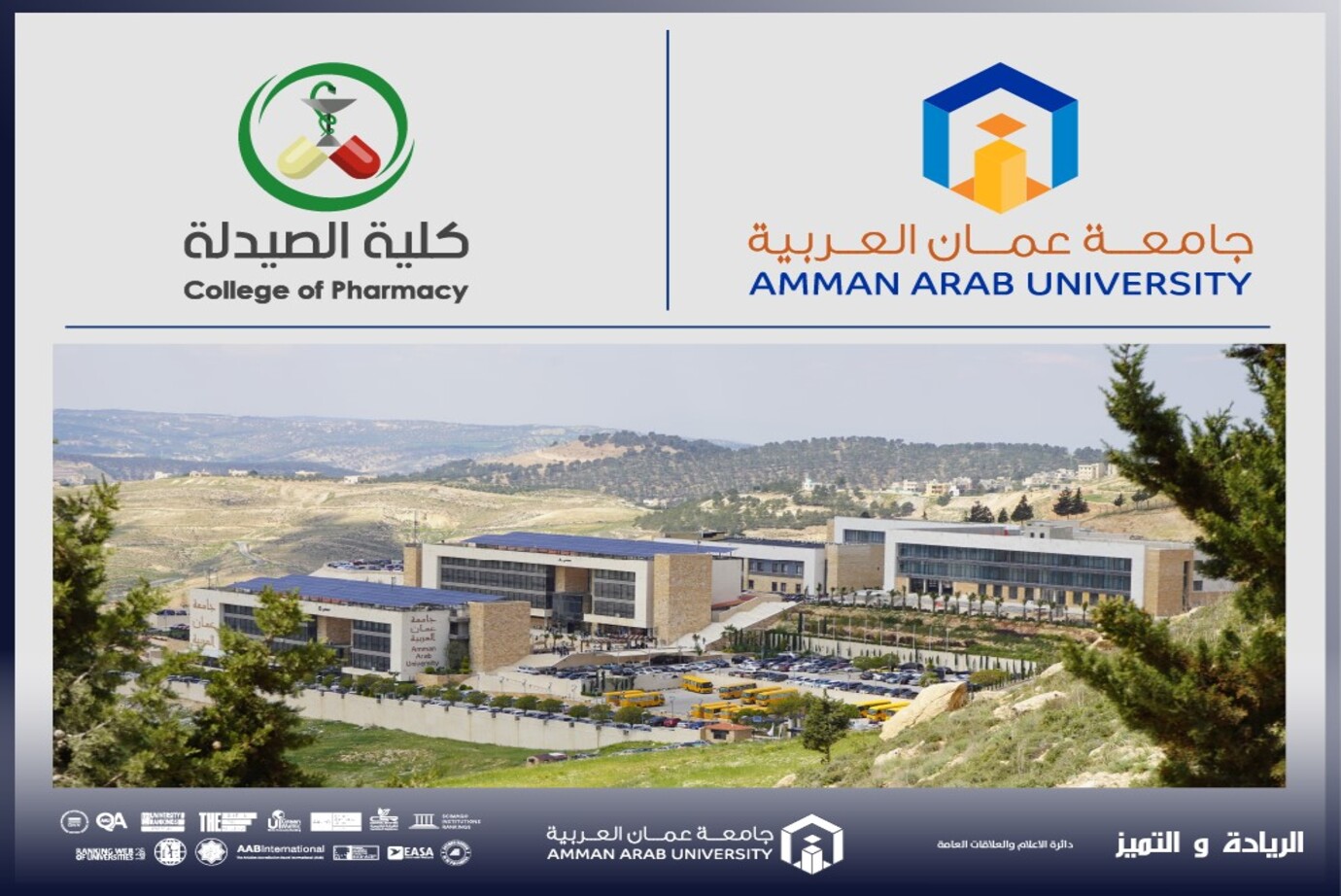
"Exploring the World of Pharmacovigilance" – Applied Lecture for Master's Students in Pharmacovigilance and Regulatory Affairs at Amman Arab University
In line with the College of Pharmacy at Amman Arab University’s ongoing efforts to strengthen practical learning and bridge academic education with labor market needs—and as part of its commitment to fostering academic and community engagement while promoting knowledge exchange with local and international experts—the college, under the directives of Prof. Dr. Mohammad Al-Widyan, University President, hosted a specialized applied lecture titled "Dive into Pharmacovigilance."
The lecture was organized by Prof. Dr. Rana Abu Hweij, Dean of the College of Pharmacy, and delivered by Dr. Dina Abusubha, a former Pharmacovigilance and Patient Safety Consultant and Head of Pharmacovigilance for the Arab Levant region at Novartis Pharmaceuticals. It was held as part of the Regulatory and Legal Affairs in Pharmacovigilance course for Master’s students in the Pharmacovigilance and Regulatory Affairs program, under the supervision of Dr. Nusseibeh Al-Qatish, a faculty member at the College of Pharmacy.
Dr. Abusubha provided a comprehensive scientific presentation addressing key challenges and advancements in pharmacovigilance, highlighting the rapid developments in this critical field, which has garnered growing global attention amid increasing drug complexity and the expanding role of technology in healthcare. She reviewed regulatory frameworks adopted by international authorities such as the U.S. Food and Drug Administration (FDA), the European Medicines Agency (EMA), and the World Health Organization (WHO), clarifying international standards for drug safety data management, adverse event reporting systems, risk assessment procedures, and the preparation of Periodic Safety Update Reports (PSURs) and Risk Management Plans (RMPs).
The lecture also explored modern methods for monitoring and evaluating drug adverse effects, emphasizing the importance of global databases like VigiBase and emerging technologies such as big data analytics and artificial intelligence in early detection of pharmacovigilance signals. Dr. Abusubha stressed that an effective pharmacovigilance system relies heavily on integrated roles and collaboration among pharmaceutical companies, healthcare practitioners, and end-users to ensure a comprehensive framework that keeps pace with advancements and meets the highest safety standards.
Additionally, she examined the state of drug regulations in several Arab countries, noting significant disparities in institutional and regulatory maturity among oversight bodies. Challenges such as limited human and technical resources, weak reporting culture, and lack of coordination among stakeholders were discussed, alongside opportunities for advancement through capacity-building, legislative development, and regional/international cooperation. Successful initiatives in some countries were highlighted as models for establishing more efficient and sustainable pharmacovigilance systems in the region.
The lecture saw active engagement from faculty and students, who posed questions on applying pharmacovigilance concepts and contributing effectively to this vital field. It deepened students’ understanding of the legal and regulatory dimensions of pharmacovigilance, enabling them to translate theoretical knowledge into practical solutions for real-world challenges faced by professionals.
In closing, Prof. Dr. Abu Hweij thanked Dr. Abusubha for her outstanding efforts in delivering this informative and practical lecture, underscoring that such events are pivotal in preparing graduates with the competence to compete in an ever-evolving job market. She reiterated that this initiative aligns with the college’s broader academic strategy to connect theoretical education with professional practice, in line with Amman Arab University’s vision of leadership and excellence in higher education.



